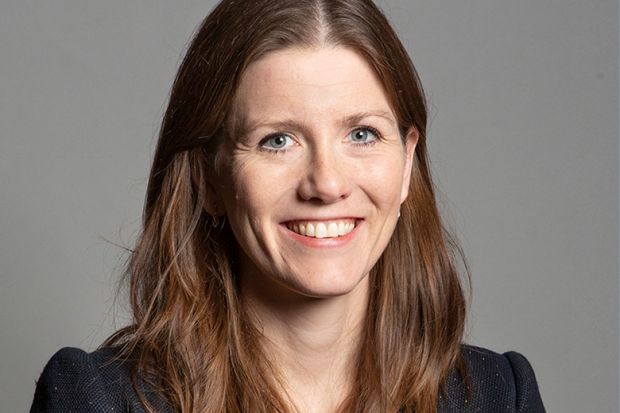UK Research and Innovation (UKRI) has found no evidence of wrongdoing by academics on an equality advisory body who were criticised by the science secretary for their social media posts questioning the government’s policy in the Israel-Gaza war.
Michelle Donelan, the Cabinet minister, has now faced calls to apologise for what was described as an “outrageous attack on academic freedom”.
Ms Donelan had last October expressed her “disgust and outrage” at Research England’s appointment of individuals to an advisory group on equality, diversity and inclusion who shared what she described as “extremist” and “unacceptable” views on social media following the 7 October attack by Hamas and Israel’s subsequent retaliation.
UKRI suspended the Research England Expert Advisory Group on Equality, Diversity and Inclusion (EDI), leading to a debate around freedom of speech, with several academics resigning from UKRI appointments as a result.
But following an independent investigation, the UKRI board has found no evidence of a breach of the advisory group’s terms of reference, and no failure to uphold the Seven Principles of Public Life, known as the Nolan Principles.
In addition, the UKRI board found no evidence in the public domain of support for a proscribed terrorist organisation or the sharing of extremist material and no grounds to remove any individual members of the EDI group.
UKRI said it “regrets any difficulties experienced” by members of the group, and said that it “warmly invite[s] the group to reconvene and to contribute their expertise as we resume the group’s important work”.
“Our intention, as soon as these concerns were raised by the secretary of state, was to adopt a well-governed process to support evidenced, principled decisions…I hope this will bring clear resolution in a way that best supports all of those who serve on our advisory groups, and research and innovation in the UK,” said Dame Ottoline Leyser, UKRI’s chief executive.
Jo Grady, general secretary of the University and College Union, said that Ms Donelan “must now apologise for throwing the careers of highly respected academics into turmoil for the sake of another Tory anti-woke headline”.
“This investigation completely exonerates our members and confirms Michelle Donelan’s unprecedented, politicised intervention was an outrageous attack on academic freedom,” Dr Grady said.
“This whole affair has had a chilling effect on university campuses and exposes the lie that hard right Tory ministers are the supposed guardians of free speech.”
Ms Donelan had claimed to be “outraged” that one of the group’s members – Kate Sang, professor of gender and employment studies at Heriot-Watt University – had described, in a tweet, the government’s plan to crack down on Hamas support in the UK as “disturbing”.
The science secretary also condemned the “amplification” of a tweet by the advisory body’s chair, Kamna Patel, a development studies academic at UCL, which “condemns violence on both sides but makes reference to Israel’s ‘genocide and apartheid’”.
In a statement posted to X, Ms Donelan said that Professor Sang had clarified that her tweet had related to the entirety of an article in The Guardian and not just the headline quoted in her tweet; and, on that basis, she had withdrawn her concerns about the tweet.
“I have never thought or claimed that Professor Sang, or any member of the board, committed a criminal offence,” Ms Donelan said.
“I fully accept that she is not an extremist, a supporter of Hamas or any other proscribed organisation and I note that an independent investigation has concluded that there is no evidence that she is. I have deleted my original post to my X account.”
The outcome was also welcomed by the Development Planning Unit (DPU) at UCL, where Dr Patel works.
“It was evident from the outset that these allegations were without merit and we believe that they should never have proceeded to formal investigation,” said Michael Walls, the DPU director.




